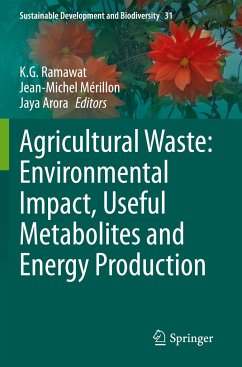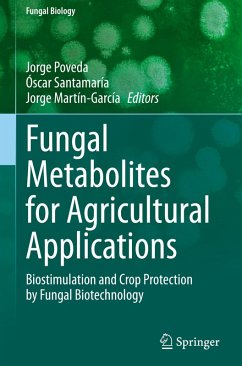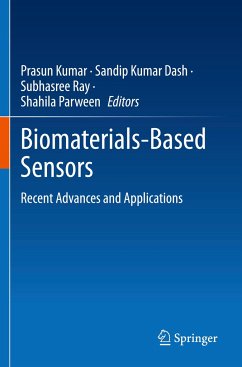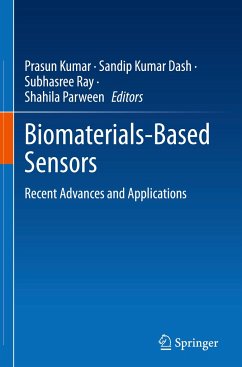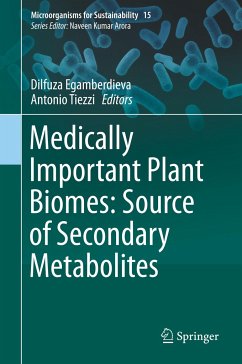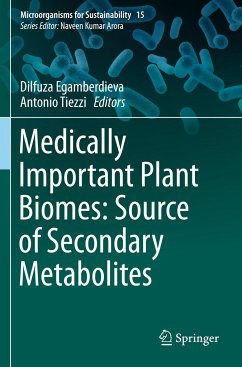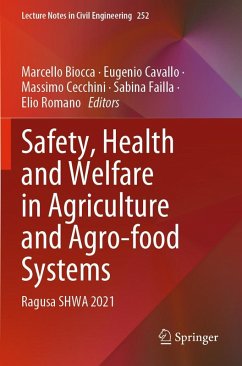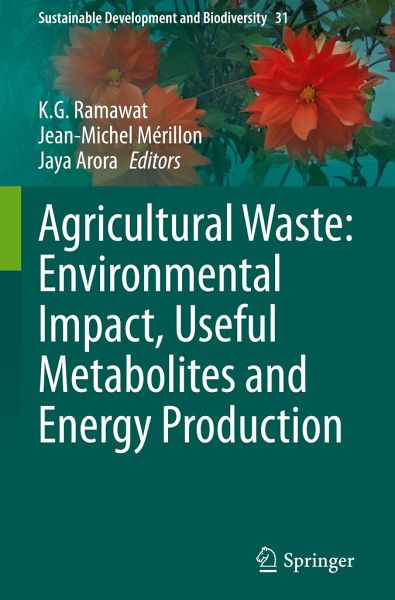
Agricultural Waste: Environmental Impact, Useful Metabolites and Energy Production

PAYBACK Punkte
113 °P sammeln!
This contributed volume deals with problems associated with huge biomass generated by crop plants and the processing of fruits and food materials. The main focus is to address problems associated with organic residues from agro-industrial processes. This book aims to provide a comprehensive and up-to-date account of various processes involved in the valorization of this huge biomass available from agro-industrial processes and obtaining valuable primary and secondary metabolites which will have an impact on the rural economy. Decrease in forest cover associated with the production of agricultu...
This contributed volume deals with problems associated with huge biomass generated by crop plants and the processing of fruits and food materials. The main focus is to address problems associated with organic residues from agro-industrial processes. This book aims to provide a comprehensive and up-to-date account of various processes involved in the valorization of this huge biomass available from agro-industrial processes and obtaining valuable primary and secondary metabolites which will have an impact on the rural economy. Decrease in forest cover associated with the production of agriculture-based waste resulting in pollutants like smoke by burning of residual crops, waste from breweries, food processing, pruning of bushes and trees, and from industries producing proteins, vegetable oils and fruit juices etc.
This book is of interest to teachers, researchers, climate change scientists, agriculture scientists and policymakers. The book brings out the latest reading material for botanists, biotechnologists, environmentalists, biologists, policymakers and NGOs working for environmental protection.
This book is of interest to teachers, researchers, climate change scientists, agriculture scientists and policymakers. The book brings out the latest reading material for botanists, biotechnologists, environmentalists, biologists, policymakers and NGOs working for environmental protection.



